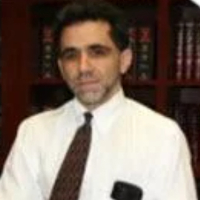Corona Criminal Lawyer, New York
Sponsored Law Firm
-
 x
x

Click For More Info:
-
Law Offices Of George Vomvolakis
275 Madison Avenue Floor 35 New York, NY 10016» view mapCriminal Defense Law Defending New York City Night And Day
We believe in personal attention for each and every client as we understand the anxiety and fear facing criminal charges may cause.
800-824-0380
Ronald Steven Nir
✓ VERIFIEDRonald Nir has represented individuals and corporations in Criminal Cases for more than 30 years. He has tried to completion well over 250 felony a... (more)
Stuart Birbach
✓ VERIFIEDIntroducing Stuart Birbach: Your Trusted Advocate for Criminal Matters in New York When it comes to navigating the complex and often daunting world... (more)
Keith A. Gilman
✓ VERIFIEDKeith Gilman grew up in Queens County, New York. He attended Hunter College High School in Manhattan, where he lettered in baseball and bowling. Mr. G... (more)
Adrienne D. Edward
✓ VERIFIEDFor 25 years, Attorney Adrienne D. Edward has been offering top-notch legal representation to individuals and families throughout New York and New Jer... (more)
Marcia Murphy Biondo
✓ VERIFIEDMarcia Murphy Biondo is a practicing lawyer in the state of New York handling personal injury cases.
FREE CONSULTATION
CONTACTVictor Knapp
FREE CONSULTATION
CONTACT George Vomvolakis New York, NY
George Vomvolakis New York, NY Practice AreasExpertise
Practice AreasExpertise





